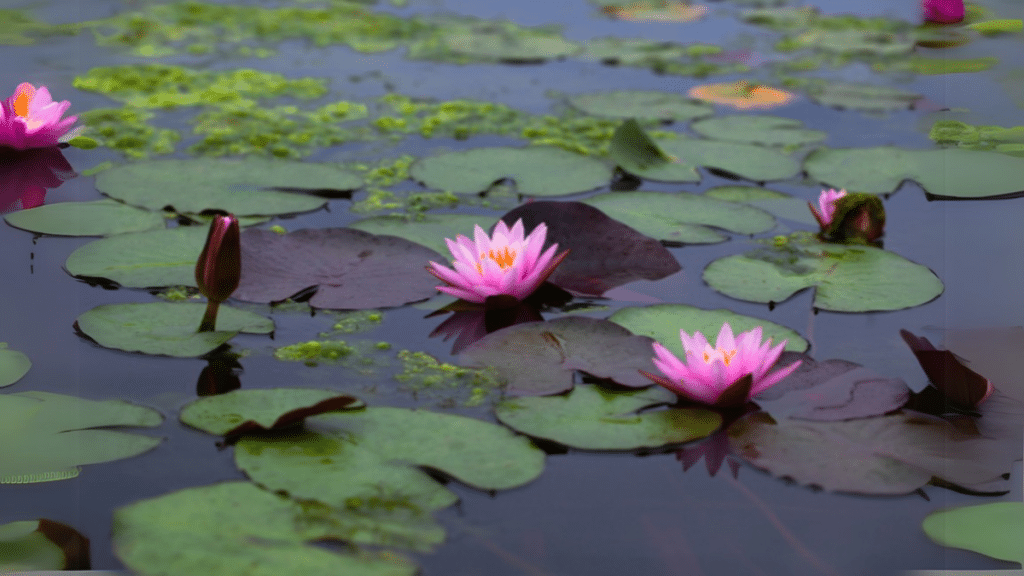Ponds are among the most underrated ecosystems in biodiversity conservation. These small but dynamic water bodies provide a crucial habitat for countless species, from tiny invertebrates to larger mammals that rely on them for survival. While large lakes and vast wetlands often receive the most attention, ponds play an equally vital role in maintaining ecological balance. Ponds can support wildlife, improve water quality, and act as stepping stones to positively contribute to the overall biodiversity in the environment.
A Haven for Aquatic and Terrestrial Species
Ponds provide shelter and sustenance to various species, including amphibians, insects, birds, and mammals. Frogs, newts, and salamanders often depend on ponds for breeding and development. Insects such as dragonflies and water beetles thrive in these water bodies, which is important as they form the foundation of aquatic food chains. Birds like herons and kingfishers frequently visit ponds to feed, while mammals such as foxes and deer use them as water sources.
Unlike fast-moving rivers or deep lakes, ponds offer a more stable habitat. Many species that struggle to survive in harsher environments can flourish in the calm waters of a pond. The rich plant life that typically surrounds these water bodies further enhances their ecological value, thus providing shelter, nesting areas, and abundant food sources.
Enhancing Local Biodiversity
Small ponds contribute significantly to the local biodiversity of an environment through the addition of diverse plant and animal life. Their nutrient-rich waters support a variety of vegetation, which, in turn, attracts insects and herbivores. This intricate web of interactions sustains a balanced ecosystem where each organism plays a role in maintaining stability.
Moreover, ponds act as biodiversity hotspots in urban and rural landscapes alike. Even a small backyard pond can host dozens of species, creating a mini-ecosystem that benefits the surrounding environment. By promoting plant growth and attracting pollinators, ponds help sustain nearby flora, contributing to a healthier and more resilient landscape.
Natural Water Filtration and Climate Regulation
Beyond supporting wildlife, ponds serve essential environmental functions. They naturally filter water by trapping sediments and absorbing pollutants, improving water quality in surrounding areas. Aquatic plants such as reeds and lilies help absorb excess nutrients, preventing harmful algal blooms that can disrupt local ecosystems.
Ponds also play a role in climate regulation. They store water, which helps mitigate the effects of droughts and reduce temperature fluctuations. In summer, ponds cool their surroundings by releasing moisture into the air, benefiting both wildlife and humans. This ability to moderate microclimates makes ponds valuable when adapting to climate change.
The Role of Ponds as Ecological Corridors
Small water bodies act as stepping stones for species moving across landscapes. Many animals rely on interconnected habitats to migrate, find food, or establish new populations. Ponds create essential links between larger bodies of water and terrestrial habitats, ensuring that wildlife can move freely without facing big obstacles.
For example, amphibians depend on pond networks to travel between breeding sites. Without enough ponds in a region, their numbers could decline due to habitat fragmentation. When you preserve and create ponds, conservationists can enhance connectivity and promote genetic diversity among species.
The Importance of a Fountain for Ponds
One way to improve the ecological value of ponds is through installing a fountain for ponds. Fountains help circulate water, preventing stagnation and reducing the risk of harmful algal growth. The increase in oxygen levels is beneficial as it helps fountains support healthier aquatic life, benefiting fish, amphibians, and beneficial bacteria that break down organic matter.
Additionally, moving water attracts a wider range of species. Birds often visit fountains to bathe and drink, while insects like butterflies and bees benefit from the increased humidity in the surrounding area. The gentle sound of flowing water also adds aesthetic appeal, making ponds more enjoyable for people while supporting local wildlife.
How You Can Support Pond Conservation
Creating and maintaining ponds is an effective way to support biodiversity. Whether on private property, in urban parks or as part of conservation projects, every pond contributes to ecological health. Homeowners can enhance backyard ponds by planting native vegetation, avoiding chemical pollutants, and installing features like fountains to improve water quality.
On a broader scale, community-driven conservation efforts can protect existing ponds from degradation. Organizations that restore wetlands and advocate for pond conservation help ensure these vital ecosystems continue to support wildlife for generations to come.
Conclusion
Ponds may be small, but their ecological impact is profound. They provide essential habitats, enhance biodiversity, filter water, regulate climate, and act as crucial ecological corridors. By recognizing their importance and taking steps to preserve them, we can support our wildlife and contribute to a healthier environment. Whether through conservation efforts, thoughtful landscaping, or installing a fountain for ponds, every action taken to maintain these ecosystems helps sustain the delicate balance of nature.
